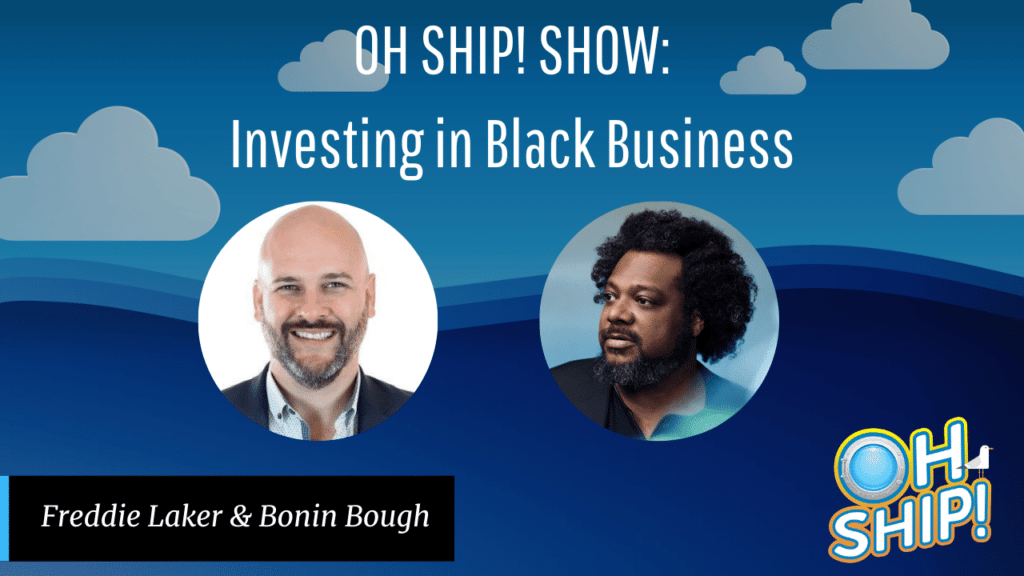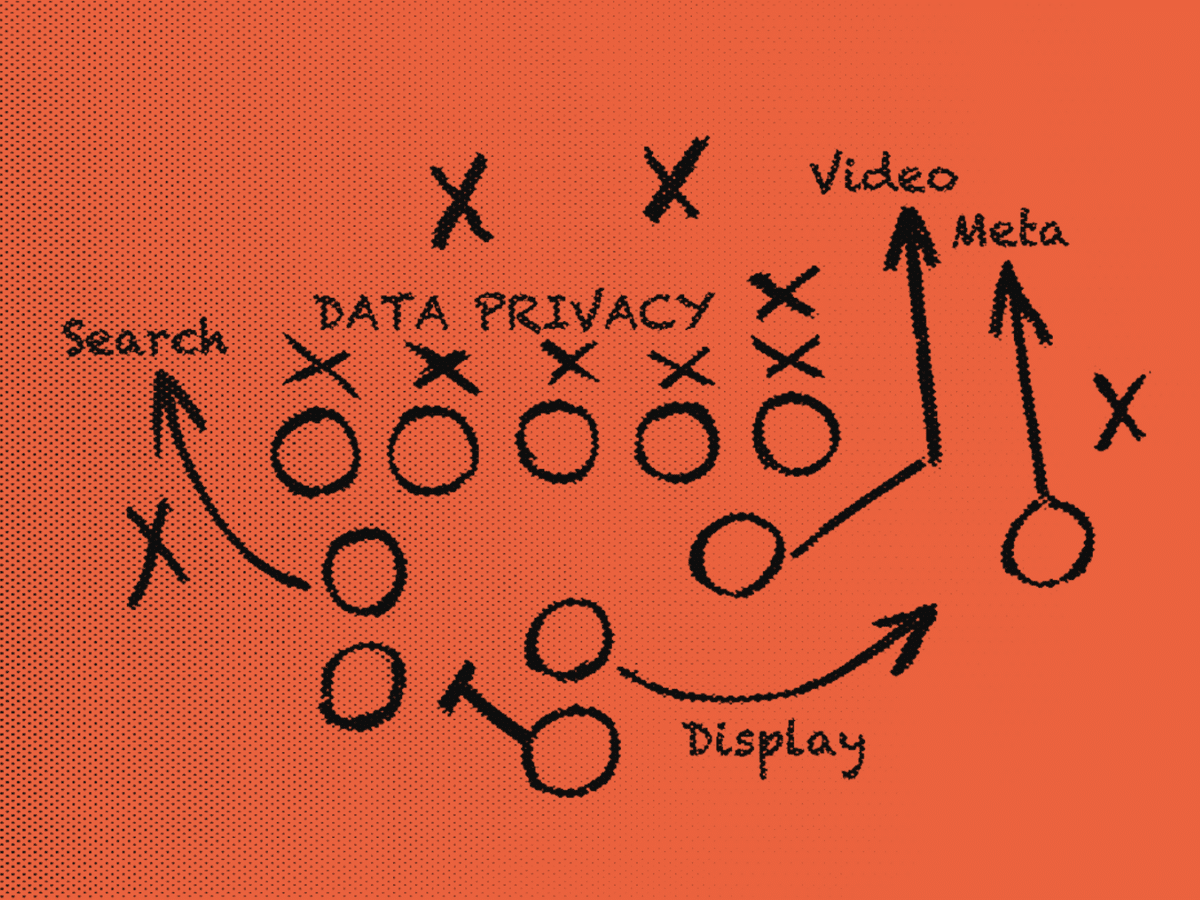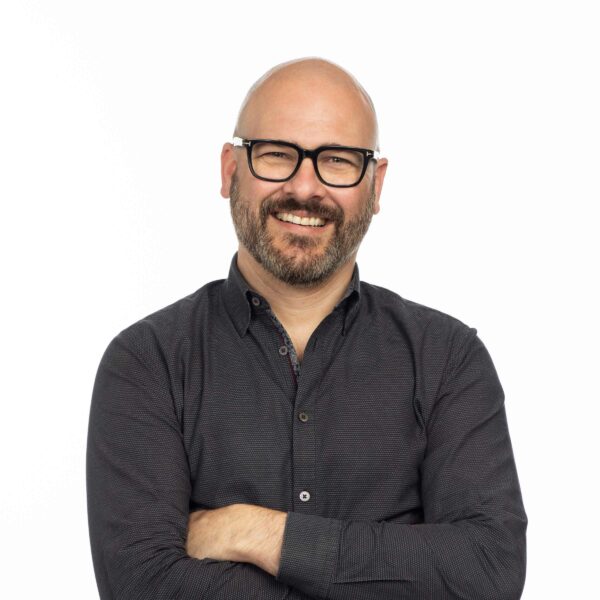Bonin presents innovative solutions to talent development and closing the wealth gap.
Bonin Bough is Chief Growth Officer of Triller and Bonin Ventures. He has also been Chief Media and eCommerce Officer at Mondelēz International (previously Kraft Foods) and Chief Digital Officer at Pepsi. Plus, he hosts the show Cleveland Hustles. And in 2021, he co-founded Lockstep Ventures, which brings consulting expertise and investment to Black enterprises. Bonin has a passion for developing talent—and he explains what cultivating executive talent is all about.
How Is Bonin Working to Close the Wealth Gap?
“When you look at the wealth gap, the difference between the average income of a Black family vs. a white family is 10x. And then less than 1% of investment goes into Black founders,” Bonin asserts. That’s why Bonin and his partners decided to invest in Black entrepreneurs.
Watching the struggles of his parents, and experiencing his own, also motivated him to invest in equality. As a child, he saw his father struggling for recognition as the skilled photographer he was.
“He created effects and techniques that had never been seen before,” says Bonin. “He would drop his book off at art directors—Ogleby, JWT, you name it—and they would say, ‘There’s no way this is your work—there’s no way a Black photographer could’ve done that.’”
After his parents split up, his mom navigated the welfare system and found them an apartment in Harlem. Most young Black men wouldn’t make it out of that area, he notes.
But by 36, he would become the youngest C-level executive in a Fortune 50. Despite his early rise to success, Bonin has experienced the same type of racial stigma his father dealt with. Too often, he says, he would walk into a meeting and know the other person was thinking, “There’s no way I’m the guy.”
Their four key priorities
In Lockstep Ventures, they decided to focus on four areas: education reform, criminal justice reforms, health care outcomes, and financial literacy. “If we can solve these challenges, we can have true systemic impact that can change the wealth gap,” they thought.
With a $50 million fund, they invest not just in entrepreneurs on the coast but in those in middle America with the least access to funds. And they’re not looking for outsized returns. They’re betting on businesses that might not bring a 100x return but a 20–25x return.
Working to level the playing field
“Most entrepreneurs that we’re looking at and working with, they didn’t have friends and family that could get them $200,000. And so they became very resilient very quickly and have never taken money—have never had the opportunity, to be fair, to take money—and have done it all on their bootstraps,” Bonin emphasizes. Partnership with Lockstep gives them not just capital but intensive mentoring, shaping everything from the PowerPoint deck to how they position the company. “If we want to get them more capital than just us, we have to shape them into something that feels more like what most investors are used to seeing,” Bonin explains.
For example, they worked with an ice cream shop business called Mikey Likes It that provides jobs for formerly incarcerated people. The founder hadn’t been able to find a job upon his release, so he started an ice cream shop—then opened more. “We looked at this and said, ‘Could we turn this into the Ben & Jerry’s of the future?’” Bonin says. “We can actually truly tackle recidivism in a way that’s sustainable and has a huge systemic impact. (…) And if we can accomplish that, we can have economic returns that change the complexion of wealth and opportunity and increase investment in these types of businesses.”
Taking the journey with founders
With early-stage investment, the likelihood of success is low, and most angel investors don’t have more capital to contribute, Bonin notes. A hands-on approach from experienced investors can bring much greater returns.
Nurturing a startup is similar to nurturing talent. “The singular most important thing is to take visionary founders and get them focused on putting one foot in front of the other,” Bonin says. Help them find product market fit, initial buyers, a pathway to grow buyers, and good people to surround themselves with. And if you’re a founder, incentivize people to stay on the journey with you.
What Does Executive-Level Talent Development Take?
Bonin also co-founded Brand U, a talent accelerator. “There are more elite athletes in the world than there are vice presidents of Fortune 1000s. So if you think it’s hard to be LeBron, it’s impossible to be Indra,” he says. Here’s his key advice for aspiring leaders.
Create a tactical plan.
While most people could bust out a 50-page PowerPoint for their product, they couldn’t do the same for their career plan, says Bonin. “The single most important thing that talent can do is to really step back and think about their career as they would the product or service that they market,” he emphasizes. Plan where you want to be, set goals, and continually check that you’re reaching benchmarks.
And focus on building your employee brand. In your communication strategy, determine the 5 to 10 people whose perception of yourself you need to shape. Then set up a plan for communicating with them once a week—preferably about something they care about. Be methodical about this. And have your HR person in your corner since they know about opportunities and can recommend you.
Also consider how long you want to stay with your company. If you love the organization, focus less on title and more on salary. But if you plan to move on, focus more on title and less on salary, he advises. Your next move will then bring a sizable salary increase.
Find a great coach.
“The best athletes on planet Earth—they have a coach. And the coach just tells them, ‘Hey, move your foot slightly to the right, and you’ll hit more three-pointers,” Bonin says. “We are corporate athletes.” And a coach can help you understand how others see you.
Some people need help with execution—getting things over the finish line. “Where I start with people is deadline setting,” he says. “Tie your execution to an immovable object.” But many struggle with building influence, especially in global organizations. “That’s a unique skill set. The reality is that the president of the United States—all he does is influence,” he asserts.
Bonin learned the value of a coach early on. When he was at Pepsi, they sent him to an executive coach—according to Bonin, they felt like he was an absentminded professor with great ideas he couldn’t execute. He was thirty minutes late to his first coaching session (Oh Ship!). But the coach taught him to package his already substantial accomplishments in a way that leaders could understand.
Focus on strengths.
“At the end of the day, you’re better off focusing on what you’re really good at than trying to fix the things that you’re really bad at. Because even if you bring up something that you’re 10 to a 30, it’s nothing compared to taking something that you’re 70 to a 90,” he says. “Instead, as you build teams, you have to hire people who are the 90 to your 10.” This means hiring those who complement and challenge you.
Learn to let go.
As a CEO, you can’t control all the smaller decisions others make. “You have to be able to make three bold enough decisions—sharp as you can—that can push through an organization or push through a team,” Bonin says. As in a game of telephone, the message will get distorted, but if it’s sharp enough, its main characteristics will come through.
“You can’t give people a play-by-play roadmap, or else they never grow,” he continues. “If you’re a general, you have to say, ‘Take the hill.’ I’m not gonna tell you how to take the hill. You call me when you need an airstrike; I’m happy to do that, but you need to figure out how to take the hill on your own in order for you to grow. And everybody’s gonna take the hill differently; the only thing that matters is, ‘Did we take the hill?’”
What’s Next for the Great Resignation?
Bonin already went through a version of the Great Resignation with Mondelēz in Asia, where they were losing 35% of their marketing talent year over year. He decided to hire an agency to create case studies featuring the work of their marketing people, which they would post on LinkedIn. Rather than leading others to poach their talent, it showed current and future talent that they could grow a career with Mondelēz. Bonin explains, “I wanted to tell our talent that we are investing in you and showcasing you; we’re growing your value.”
Likewise, today’s employers need to create a value proposition for their employees. “The employee experience, the value creation that we deliver to employees, is more important than anything else that we can do,” he asserts. “The ones that are gonna win are those that figure out that equation.”









